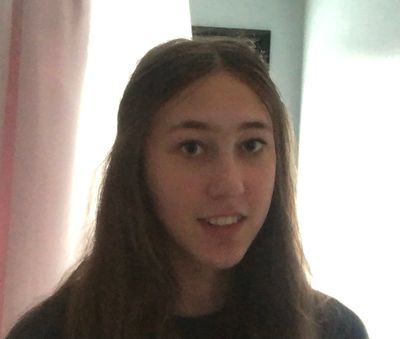Eva Lassman Holocaust Writing Contest: ‘The Importance of Holocaust Education’

Between the year 1933 and the year 1945, more than 6 million Jewish people were murdered in what is now widely referred to as the Holocaust. The question has always been raised, how was something so atrocious, something so cruel, and something so downright evil, “allowed” to happen? The Holocaust is one of, if not the largest case of mass genocide our world has ever seen. And lately, almost no one talks about it. The Holocaust is “a thing of the past.” Yet the valuable lessons and skills that accompany Holocaust education are crucial for a functioning society. By implementing Holocaust education into our statewide curriculum, we would be preventing future genocides from taking place, as well as teaching students important life skills along the way. And additionally, we would ensure that the lives brutally taken from millions of innocents would not be forgotten. As Elie Wiesel, esteemed author and Holocaust survivor, once stated, to “forget the dead would be akin to killing them a second time.” And forget the dead we shall not.
Multiple studies have been conducted with the intent of discovering the numerous mental and social benefits of structured Holocaust curriculum. Of the more prominent discoveries was the fact that Holocaust education, as reported on unesco.org, highlights “aspects of human behavior that affect all societies … (including) the roles that fear, peer pressure, indifference … and resentment can play in social … relations.” Learning about such characteristics at a young age is crucial for building lasting communication and critical-thinking skills. By educating younger generations on the effects of peer pressure in social situations, students would be more likely to stand up for themselves and call out any potential bullying or discrimination they may witness.
Mass genocides generally stem from widespread manipulation and coercion. Teaching students the simple lessons that accompany standardized Holocaust education, could be the difference between the future ostracization of different minority groups. Not only would Holocaust education decrease the number of bystanders, but it would help students recognize dangerous propaganda. At the start of World War II, European, and especially German populations were extremely susceptible to antisemitic and pro-Nazi propaganda. It was easy to blame daily hardships on the Jewish population when their own government was pointing fingers and printing out those same lies everywhere. By learning key analytic thinking skills, people would be more likely to slow down and accurately interpret certain types of propaganda. Multiple sources, including tnholocom.org, support this view, stating that students would “learn to identify the danger signals and … know when and how to react.” Being able to recognize the warning signs that accompany impending dictatorial actions would give populations the time to resist, which was what past generations lacked. Providing our youth with Holocaust oriented education would lessen the chances for repeated genocide and help prevent subsequent generations from suffering at the hands of discriminatory dictatorships.
If history has taught us one thing, it is that hard times bring out different responses from different people. The Holocaust was an unspeakable act of horror that caused the death of millions, yet for those who perished, there were thousands that survived with courageous stories of empathy and bravery. Small actions, whispered words of advice, shared rations, and kind exchanges were just a few simple acts that inspired hope and perseverance into Holocaust victims. And over half a century later we can still learn and be inspired by those who were tortured so long ago.
Around 10 years ago, a small middle school in Tennessee undertook a massive project. Collecting over 30 million paper clips, they filled a train car to represent those imprisoned and murdered by the Nazi regime, inspired by stories of survivors to make a difference in their community. The principal of the middle school expressed that the “paperclips project (had) been an affirmation of (her) beliefs that education is absolutely essential to change.” Holocaust education goes far beyond teaching simple history. Holocaust education inspires students and teachers to make a difference in their communities and in their world. If more people knew the effects that simple, kind actions could have on those around them, our world would become a safer and more empathetic place. Like Linda Hooper said, education is necessary for change.
Speaking of change, as our world progresses into the 21st century, diversity is becoming exceedingly prevalent. Different religions, races, and orientations make up the global population. However, the idea of “different” has always been a basis for hate and discrimination in society. Antisemitism, the act of hostility and prejudice toward Jewish people, was one of the root causes of the Holocaust. Educating young students on the Holocaust and surrounding events, would build tolerance and acceptance into future generations. Multiple surveys have been conducted with this theory at mind, and the results posted at ednote.ecs.org clearly showed that students who studied the Holocaust “were more willing to challenge incorrect or biased information and stand up to negative stereotyping.” Our world is filled with different people from a multitude of different backgrounds and that is a fact that should be celebrated, not oppressed. No matter what god we worship, no matter who we love, and no matter what the color of our skin, we are all humans that deserve respect and common decency. Educating students on the Holocaust would not only further this truth, but it would cement it for generations to come.
There really are no words that can accurately encompass the horrors of the Holocaust. No words that can explain the lives lost, and no words that can mend the demons of the past. Yet if states around the country, and eventually around the world, were to implement Holocaust education into their curriculum, future horrors akin to the Holocaust would be prevented, students would learn to be more empathetic and accepting, and we would be one step closer to building a world less divided.